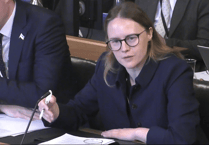Last week came to an end with another jam-packed couple of days in the constituency before whizzing off to the Labour Conference in Liverpool.
On Friday I checked into Newquay’s annual Beer Festival hosted by the Towan Blystra Lions to pour some pints and, Saturday morning, the much-needed Wellbeing Day at the Newquay Orchard – my attendance at which was entirely coincidental. Both were a resounding success, despite roaring thunder and intermittent monsoon conditions.
I also met Cornwall’s Down Syndrome Support Group to discuss how members can use our democratic process to elevate their voices. I am proud to be joining the All Party Parliamentary Group for Down Syndrome as a member.
Labour Conference this year, for me, has a distinctly more relaxed feel – I spoke on panels including on how we ensure that our Government’s industrial strategy reaches the Small Medium Enterprises (SMEs) that are the backbone of the Cornish economy, as well as on more niche topics such as sustainable biomass.
Conference opened with the Prime Minister addressing the South West’s group of 24 Labour MPs, the largest ever number. The South West is now a Labour region. There is no small challenge ahead to rebuild our country but, by speaking as one voice with the ear of Government – certainly at the Cornish level, where we have worked closely with Liberal Democrat colleagues in North and West Cornwall – this task is altogether easier. There are also occasions where banding together as this wider group in the South West will be of great value, whether that be in matters such as rail connectivity or rural affairs.
It was great to hear Angela Rayner give special mention to Cornwall in her opening speech. In July, Cornwall spoke and asked for a Labour Government. That Government is at last listening to Cornwall. But power, as she said, must be devolved from Whitehall.
With the second so-called recess of the Parliamentary term so far upon us and over a dozen votes behind us, it also seems like the right moment to take stock of what it means to be one of 650 decision-makers and what’s in a vote. This is something which, earlier on Friday, I spoke about in my interview at the St Austell Arts Theatre.
Take a moment to envisage four scenarios of your level of influence and group discipline. One set where you play by your Party’s rules and achieve some influence and one where you don’t. Another where you break the rules and, similarly, either achieve influence or choose not to. In my mind, these are the trade-offs I make when I walk through the Yes and No Lobbies in Westminster. Government bills are usually near enough black and white.
The real world is not. If a decision is 80% the change you want to see and 20% difficult consequences, do you say “Yes, and here’s how we’ll address those consequences” or do you frustrate the whole process? Politics, particularly Government, is a collective effort, far more than it is given credit for in today’s world of big personalities and influencers. Some of the great figures excel in carefully disciplined set pieces. Some make a name for themselves, for better or worse, in theatrics. But the best team players influence the game from the pitch rather that the subs bench.




.jpg?width=209&height=140&crop=209:145,smart&quality=75)